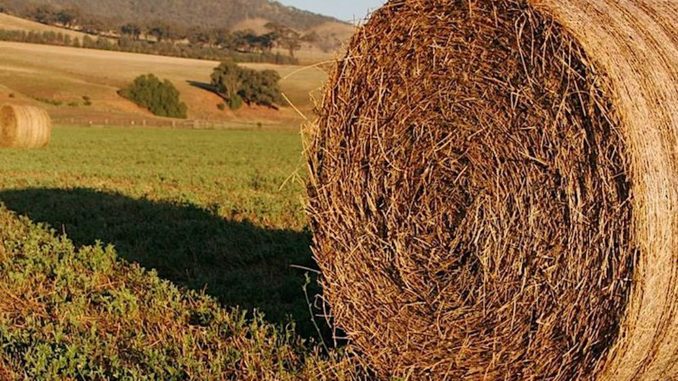
~ Press release issued by the Virginia Farm Bureau Federation
In the face of ongoing economic volatility, U.S. farmers continue to produce: For each input that goes into farming, they produce 2.75 times more. And lawmakers need to understand this as they establish priorities for the 2023 U.S. Farm Bill.
Virginia farmers learned about the outlook for the farm bill and 118th congressional session in a Nov. 29 Washington update at the Virginia Farm Bureau Federation Annual Convention in While Sulphur Springs, West Virginia.
Andrew Walmsley, senior director of government affairs for American Farm Bureau Federation, encouraged attendees to educate their congressional representatives on farmers’ efforts to promote conservation through innovative best management practices, and to share data with them that shows a reduction in agricultural emissions with a simultaneous increase in yield and quality.
Enduring market volatilities are compounded by dozens of economic factors, Walmsley explained, including supply chain challenges, export and transportation issues, drought impacts, inflation, soaring diesel prices and rail-service labor conflicts.
“In this room there are no surprises here,” he said. “You live this. We have seen some higher commodity prices absorb some of these costs. But some of you may recognize our commodity prices may fall much more quickly than the cost of inputs.”
Walmsley offered some background information on the four chair and ranking members of the House and Senate agriculture committees who will be key in drafting the 2023 Farm Bill. The bill typically includes 12 titles, from commodities to conservation to crop insurance expansion. The Supplemental Nutrition Assistance Program takes the biggest chunk of spending in the bill.
With 88 new members of the House and eight new senators, “we have a lot of work to do as Farm Bureau to educate members of Congress on the importance of the farm bill,” he continued.
Almost half of Congress will be taking up the farm bill for the first time. The previous farm bill passed in 2018.
One farmer asked Walmsley how climate issues will play into the bill.
“Climate has been a tough issue for Farm Bureau to discuss in the past,” he replied. “In a lot of those early negotiations, agriculture was not invited to the table, and a lot of bad ideas were put out there, like carbon tax and cap-and-trade (emissions caps) that unnecessarily increased our energy costs.”
There is interest in agriculture being part of the solution to take carbon from the atmosphere and store it in trees and soil, he added.
“Farm Bureau policy has been pretty robust when it comes to climate policy,” Walmsley said. “We do have a good story to tell. There is a lot we can do to provide the societal benefits expected of us.”
With 133,000 members in 88 county Farm Bureaus, VFBF is Virginia’s largest farmers’ advocacy group. Farm Bureau is a non-governmental, nonpartisan, voluntary organization committed to supporting Virginia’s agriculture.. View more convention news at vafb.com/convention
•••
RELATED ARTICLES
Woodstock beef cattle farmer elected to Farm Bureau board
Shifflett finishes runner-up at Young Farmers Collegiate Discussion in Blacksburg
Gov. Youngkin awards grant for meat processing study in Fauquier County
Record funding allows farmers to implement conservation projects for FREE
New budget gives Virginia’s farmers record funding for soil and water conservation



Be the first to comment